The Teagasc beef conference had a large attendance at its new venue in Carrick-on-Shannon last week.
The beef industry is in a good place at the moment with both the weanling trade and beef trade moving in the right direction and this was reflected in the overall buzz on the night.
The conference took an evening format to fit in better with the part-time nature of dry stock farms especially in the northwest of the country.
Clover results
One of the main technical papers was presented by Peter Doyle, the Teagasc research officer in charge of the Derrypatrick Suckler Demonstration herd based in Teagasc, Grange, Co Meath.
Some of its aims of this 80-cow suckler herd is to increase profitability and decrease environmental footprint through reducing animal finishing age, concentrate input and nitrogen fertiliser input.
Peter summarised some interesting results from the performance of the Derrypatrick Aberdeen Angus and Charolais progeny grazing a grass clover sward versus a grass only sward in their 2nd grazing season.
Table 1 outlines the results.
Cattle grazing the grass clover sward were 27kg heavier at the end of the second grazing season which translated into 18kg of carcase weight when animals were slaughtered.
At a €5/kg base price this resulted in a €113/head advantage to the clover system.
Peter is currently looking at breed differences with results available in the coming months.
He also outlined some of the challenges in relation to establishing clover swards with a full reseed being advised as the best way to establish a clover sward.
Staying resilient in stressful times
Shane Pearson is a life coach with his own business “design your life coaching”.
He was brought up on a farm and now lives in Durrow, Co Laois while he still remains involved in the family farm.
You may be thinking what was this slot doing at a Teagasc beef conference but it was one of the standout sessions for many that attended last week’s conference.
Shane’s talk was dominated by making yourself resilient to be able to cope with the specific stress and strain that farming brings.
He explained the ‘five Ps’ of resilience in his presentation which are outlined below
Presence
Presence is about staying focused on the task in front of you, rather that than getting that feeling of being overwhelmed by all the things you have to do.
He explained that staying grounded in the task in hand keeps the mind calmer and helps prevent mistakes that could add to stress later. Deep breaths, taking in your surroundings and tackling one task at a time are all good ways of staying resilient.
Purpose
Shane spoke of a clear sense of purpose being an important anchor in life.
Providing for your family, preserving the land and honouring a legacy could all be part of someone’s purpose and having a clear purpose provides some direction.
Reflecting on why you are doing it all, visual reminders of family in the workplace and celebrating small wins can all help achieve a sense of purpose.
Power
Sleep, nutrition and hydration all provide the power for our bodies. When you are running low on any of these, the mind and body can be more vulnerable to stress.
Quality sleep, eating balanced regular meals and making sure you are getting essential minerals in your diet are all part of powering up.
People
Support is really important for resilience and trying to do it al yourself can lead to burnout. Seek assistance for routine tasks so you can focus on the high priority work.
Delegating routine tasks, building a support network around you like a neighbour you can call upon and return the favour whenever needed are all part of a good support network.
Preparation
“Effective preparation can be the difference between a smooth operation and a stressful scramble” Shane said.
Adopting a proactive approach and addressing some minor issues could really help you cope with a high stress period.
Something as simple as hanging a gate properly could streamline things for when you are under pressure to get to work on time some morning. Planning key tasks, and fixing small issues are all part of preparation.
In short
Suckler bred bullocks and heifers grazing a grass/clover sward had a greater weight gain (+0.1kg/day) and were 23kg heavier at the end of the grazing season resulting in a 14kg heavier carcase compared to animals grazing a grass only sward.Suckler cattle reared on a grass/clover sward (white clover grass and red clover silage) from birth to finishing were 27kg heavier at finishing resulting in an 18kg heavier carcase. Compared to animals reared on a grass only system.Incorporating clover reduced the requirement for chemical fertiliser.There are 5 Ps that can help farmers in managing stress and maintaining wellbeing, Presence, Purpose, Power, People and Preparation.Studies have shown that many farmers experience poor mental health, high rates of burnout, and physical health issues related to stress, yet adequate resources to address these challenges can be scarce.
The Teagasc beef conference had a large attendance at its new venue in Carrick-on-Shannon last week.
The beef industry is in a good place at the moment with both the weanling trade and beef trade moving in the right direction and this was reflected in the overall buzz on the night.
The conference took an evening format to fit in better with the part-time nature of dry stock farms especially in the northwest of the country.
Clover results
One of the main technical papers was presented by Peter Doyle, the Teagasc research officer in charge of the Derrypatrick Suckler Demonstration herd based in Teagasc, Grange, Co Meath.
Some of its aims of this 80-cow suckler herd is to increase profitability and decrease environmental footprint through reducing animal finishing age, concentrate input and nitrogen fertiliser input.
Peter summarised some interesting results from the performance of the Derrypatrick Aberdeen Angus and Charolais progeny grazing a grass clover sward versus a grass only sward in their 2nd grazing season.
Table 1 outlines the results.
Cattle grazing the grass clover sward were 27kg heavier at the end of the second grazing season which translated into 18kg of carcase weight when animals were slaughtered.
At a €5/kg base price this resulted in a €113/head advantage to the clover system.
Peter is currently looking at breed differences with results available in the coming months.
He also outlined some of the challenges in relation to establishing clover swards with a full reseed being advised as the best way to establish a clover sward.
Staying resilient in stressful times
Shane Pearson is a life coach with his own business “design your life coaching”.
He was brought up on a farm and now lives in Durrow, Co Laois while he still remains involved in the family farm.
You may be thinking what was this slot doing at a Teagasc beef conference but it was one of the standout sessions for many that attended last week’s conference.
Shane’s talk was dominated by making yourself resilient to be able to cope with the specific stress and strain that farming brings.
He explained the ‘five Ps’ of resilience in his presentation which are outlined below
Presence
Presence is about staying focused on the task in front of you, rather that than getting that feeling of being overwhelmed by all the things you have to do.
He explained that staying grounded in the task in hand keeps the mind calmer and helps prevent mistakes that could add to stress later. Deep breaths, taking in your surroundings and tackling one task at a time are all good ways of staying resilient.
Purpose
Shane spoke of a clear sense of purpose being an important anchor in life.
Providing for your family, preserving the land and honouring a legacy could all be part of someone’s purpose and having a clear purpose provides some direction.
Reflecting on why you are doing it all, visual reminders of family in the workplace and celebrating small wins can all help achieve a sense of purpose.
Power
Sleep, nutrition and hydration all provide the power for our bodies. When you are running low on any of these, the mind and body can be more vulnerable to stress.
Quality sleep, eating balanced regular meals and making sure you are getting essential minerals in your diet are all part of powering up.
People
Support is really important for resilience and trying to do it al yourself can lead to burnout. Seek assistance for routine tasks so you can focus on the high priority work.
Delegating routine tasks, building a support network around you like a neighbour you can call upon and return the favour whenever needed are all part of a good support network.
Preparation
“Effective preparation can be the difference between a smooth operation and a stressful scramble” Shane said.
Adopting a proactive approach and addressing some minor issues could really help you cope with a high stress period.
Something as simple as hanging a gate properly could streamline things for when you are under pressure to get to work on time some morning. Planning key tasks, and fixing small issues are all part of preparation.
In short
Suckler bred bullocks and heifers grazing a grass/clover sward had a greater weight gain (+0.1kg/day) and were 23kg heavier at the end of the grazing season resulting in a 14kg heavier carcase compared to animals grazing a grass only sward.Suckler cattle reared on a grass/clover sward (white clover grass and red clover silage) from birth to finishing were 27kg heavier at finishing resulting in an 18kg heavier carcase. Compared to animals reared on a grass only system.Incorporating clover reduced the requirement for chemical fertiliser.There are 5 Ps that can help farmers in managing stress and maintaining wellbeing, Presence, Purpose, Power, People and Preparation.Studies have shown that many farmers experience poor mental health, high rates of burnout, and physical health issues related to stress, yet adequate resources to address these challenges can be scarce. 



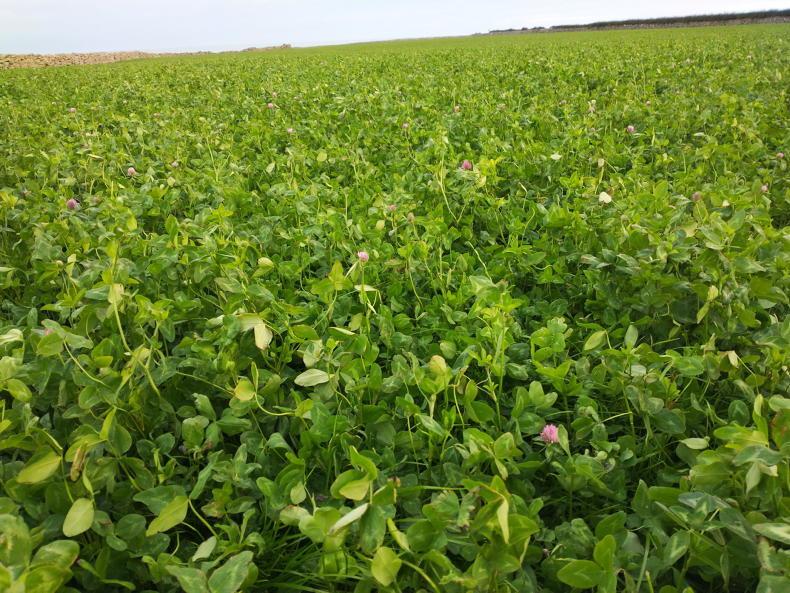
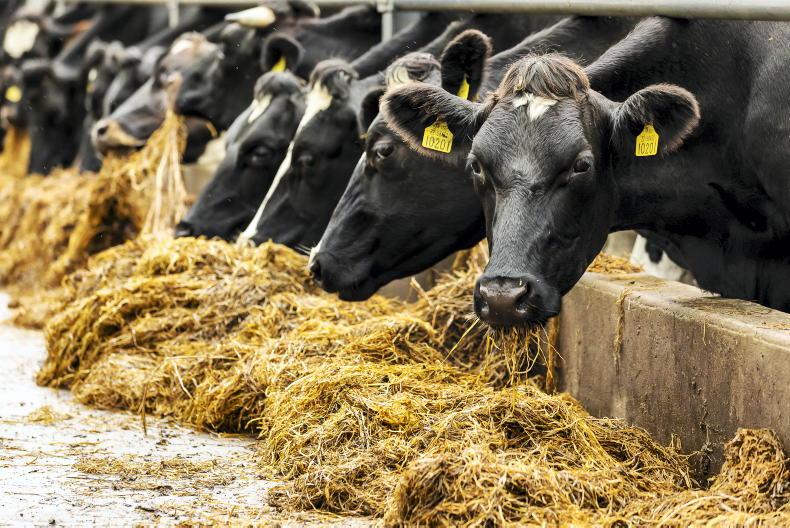

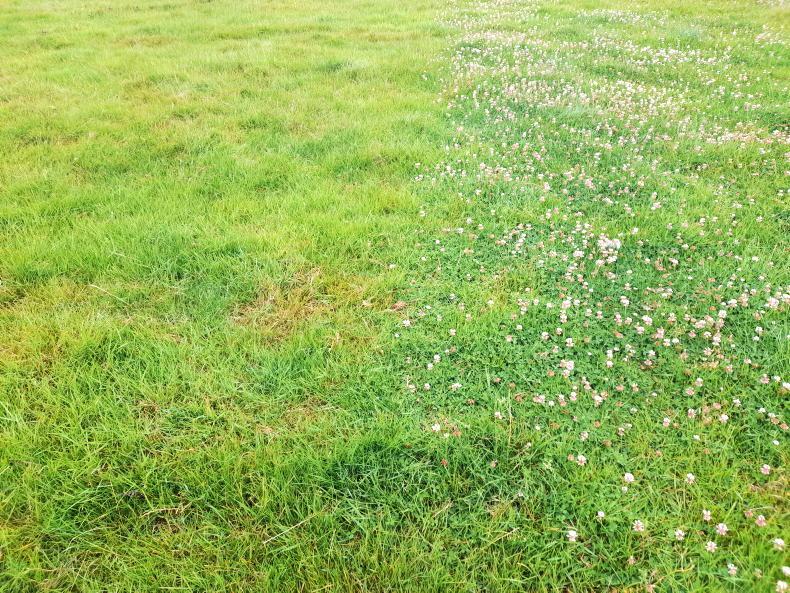
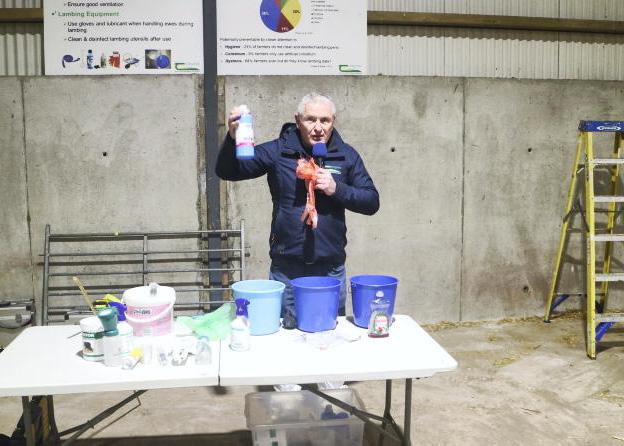
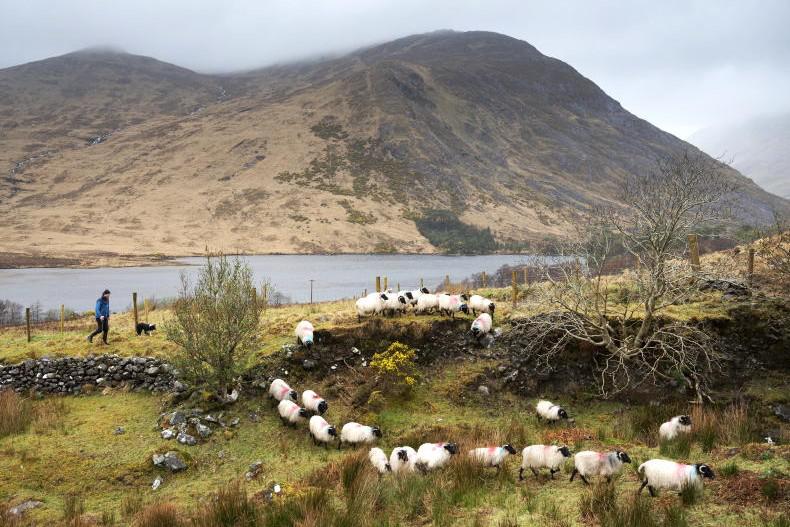
SHARING OPTIONS